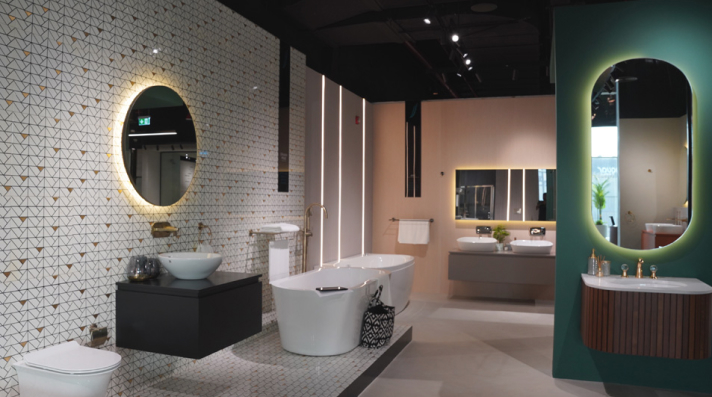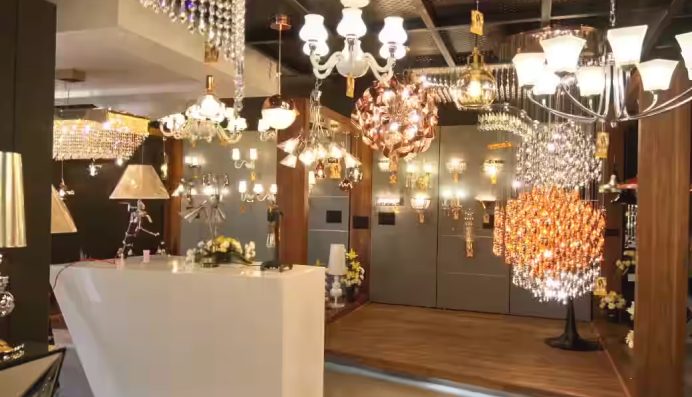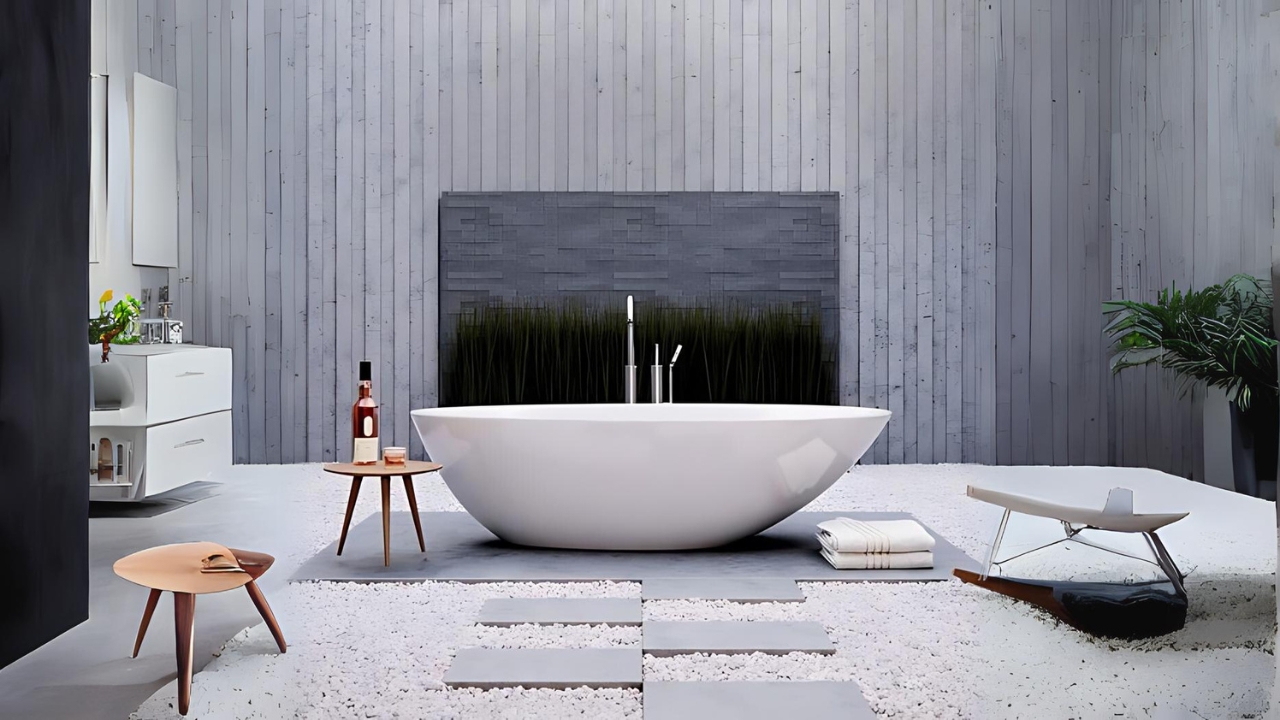The humble shower has an extensive history spanning thousands of years. While showers today represent convenience and luxury, early versions originated from ritual purification and community bathing. Tracing the shower's evolution reveals intriguing insights into changing cultural practices and technological innovations. From ancient aqueducts to smart showers, this rich history influences how we bathe today.
Historical Significance of Showers Across Different Cultures
In societies worldwide, communal bathing has long served important cultural purposes beyond just physical cleansing.
- Social gathering place promoting community bonding.
- Site for spiritual rituals or medicinal therapies.
- Status symbol representing sophistication and luxury.
- Required transition from mundane to sacred in religious rites.
- Health promoting activity gives access even to the poor.
Across history, showers facilitated cultural connection beyond just washing.
The Ancient Origins of Showering

Credits: Canva
The earliest known showers date back thousands of years.
Aqueducts and Public Bathhouses
Around 2000 BC, ancient Minoans on Crete enjoyed indoor showers thanks to advanced aqueducts supplying pressurized water. Public baths flourished in ancient Greece and Imperial Rome, with flowing waters accessed by rich and poor alike. By 300 BC elaborate Roman baths provided early shower technology.
Ritual Purification
For ancient cultures like the Egyptians, bathing played a deeply spiritual role. Complex purification rituals with unique water delivery methods prepared priestesses for religious ceremonies. Some early showers involved pouring water over the body to cleanse before entering sacred spaces.
Early communal baths served cultural needs beyond washing with primitive shower systems.
Showers in The Middle Ages
With the fall of the advanced Roman Empire, bathing fell from favor in much of medieval Europe. Some reasons:
- Lack of infrastructure as aqueducts fell into disrepair.
- Associating bathing with sin and moral decline.
- Belief that opening skin's pores enabled disease - a dangerous proposition when the Plague struck.
- No differentiation between sanitation and holistic health as in earlier advanced cultures.
While medieval Europeans eschewed bathing, Islamic cultures maintained ritual cleansing and advanced hygienic practices. Islamic hamams beginning in the 10th century provide continuity from Roman baths.
The Renaissance of Showers to the 19th Century

Credits: Jaquar
By the late 1700s public bathhouses regained popularity in Europe and early versions of modern showers emerged.
- Paris opened public riverfront bathing pools with primitive showers in the late 18th century.
- In 1810 an English spa town introduced the "Domestic Shower-Bath" - a vertical piping system using hand pumps to raise water.
- In the 1830s London bathhouses offered refreshing cold water showers.
- By the mid 19th century, needle bath showers provided invigorating high-pressure water streams.
While still communal, early modern shower technology brought increased privacy.
Modern Showers in The 20th Century

Credits: Jaquar
In the late 19th and early 20th centuries, plumbing innovations advanced domestic shower technology.
Electric Showers
In 1889 an early water heater provide hot shower water. But dangerous pressurized cans made safety a concern. In 1927 the first electric power shower heaters made home showers safe and practical.
Mass Production
As the 20th century progressed, manufacturing improved reliability and availability of home showers:
- In 1900 cast iron bathtubs with showers become common.
- By the 1920s standardizing plumbing parts enabled mass production.
- In the 1930s affordable enameled steel showers spread through homes.
- Post WWII focus on convenience and appliances made home showers ubiquitous.
Home showers shifted from luxury to common commodity in the 20th century.
Showers in The 21st Century: Smart Showers and Luxurious Experiences

Credits: Jaquar
Home showers today integrate technology and focus on therapeutic luxury.
Smart Showers
Digital interfaces and wireless connectivity advance 21st century showers:
- Touchscreen and voice controls for customization.
- Preset personal profiles store favorite settings.
- Digital displays sync lighting, music, and aromatherapy.
- Waterproof speakers pipe in tunes.
- Bluetooth connectivity links showers to home networks and smartphones.
Wellness and Luxury
Today's showers provide whole-body rejuvenation:
- Rainfall heads for massage-like relaxation.
- Targeted water jets soothe muscles and joints.
- Steam units and aromatherapy boost relaxation.
- Chromatherapy lighting sets desired moods.
- Spa-like materials such as stone finishes.
Once humble hygiene aids, modern showers now provide therapeutic tranquility.
International History of Showers

Credits: Jaquar
Beyond Europe, showers evolved across cultures worldwide:
Japan - Communal bathing dates back 1500 years. Today's custom wooden soaking tubs maintain bathing traditions.
Middle East - Islamic ritual washing inspired early private shower rooms called ghusl khaneh.
Native Americans - Sweat lodges used water cleansing before entering and after exiting.
Ancient China - Hydrotherapy focused on balancing yin and yang energies with contrasting shower streams.
Ancient Egypt - Elaborate purification rituals prepared royalty through engineered shower contraptions.
Ancient Greece - Public bathhouses provided primary gathering places promoting social ties.
South America - Mayans designed primitive overhead aqueduct style showers in natural cavern spaces.
Sub-Saharan Africa - Shared village wells and water taps replaced communal public bathing.
Showering history traces diverse cultural bathing traditions worldwide.
Showers Through Early Human Civilizations

Credits: Jaquar
Early showers took unique forms across ancient cultures:
Ancient Egypt
Royalty and priests used intricate mechanized systems to pour scented waters over the body for ritual cleansing. These elaborate contraptions represent some of the earliest shower technology.
Ancient Greece and Rome
Large public bathhouses provided more than just washing. Socializing while bathing was integral to daily life. Aqueduct systems delivered pressurized water to enable early showering.
Mesoamerican Cultures
Primitive aqueducts directed rainwater collected on pyramids down chutes as early showers. Archeological sites show dedicated bathing areas indicating cultural emphasis.
Ancient China
Hydrotherapy used contrasting hot and cold water streams to balance yin and yang energies. Elaborate hygiene regimens included steam, massage and scented water treatments.
Middle Ages Islamic Cultures
While medieval Europeans avoided bathing, Islamic cultures maintained Roman traditions. Separate steam and showering rooms called ghusl khaneh connected to prayer rooms.
Tracing ancient showers reveals ritual and community significance.
Purification Rituals in Early Showers

Credits: Jaquar
For many ancient cultures, bathing held deep spiritual meaning for purification and preparation:
Egypt - Pharaohs and priests used engineered showers before religious rituals, with water transporting them to spiritual realms.
Greece - Public bathing pools called loutron allowed spiritual cleansing rituals before participating in community functions.
Rome - Complex bathing regimens called ablutions prepared cult members before entering temples.
Maya - Sweat lodges and aqueduct style showers represented a rite of passage into higher social status.
Japan - Neighborhood bathhouses provided ritual cleansing and social bonding simultaneously.
Islamic - Ghusl washing rituals maintain spiritual purity according to Quranic principles.
Early showers focused on communal cultural practices beyond hygiene.
Sociocultural Significance of Community Bathing

Credits: Jaquar
Public baths held central social importance in many ancient cultures:
Greece & Rome - Social and political gatherings happened in bathhouses as integral public forums.
Middle East - Public hamams provided rare opportunities for women to socialize outside homes.
Japan - Sento bath houses continue offering neighborhood social connection points today.
Mayan - Archeological remains of palatial bathing pools indicate communal functions beyond washing.
Egypt - Temple bathing complexes like Karnak symbolized the prestige of rulers able to provide public amenities.
Minoan - Elaborate architectural palatial baths suggest cultural emphasis on bathing leisure.
Early public baths fulfilled cultural roles beyond hygiene necessities.
Transitions in Bathing Culture and Technology
Shifting views on bathing over time influenced shower designs:
Middle Ages - Decline of bathing in Europe associated with disease avoidance and moral views.
19th Century - Improved urban sanitation revived public bathhouses promoting hygiene.
Early 20th Century - Electric water heating advanced safe, reliable in-home showers.
Late 20th Century - Postwar shift toward convenience culture moved showers into homes.
Today - Digital interfaces focus showers on luxury experiences over basic functionality.
Changing cultural priorities continually reshape our bathing methods.
Customizable Luxury Shower Systems by Jaquar
Indulge in our advanced shower features:
- Full-coverage rainfall showerheads
- Targeted hydrotherapy body jets
- Invigorating steam
- Built-in aromatherapy
Let us customize your dream shower utilizing old world traditions with new world technology for the ultimate at-home spa sanctuary.
Conclusion
From ancient aqueducts to digital interfaces, the shower's evolution reveals our changing health practices, cultures, and technologies. While showers began as communal baths, they now represent personal pampering and wellness. Yet despite advances, showers still provide the deep primal pleasure of bathing, just as our ancestors enjoyed centuries ago. The history of showers mirrors humanity's quest to harness water's rejuvenating benefits.


